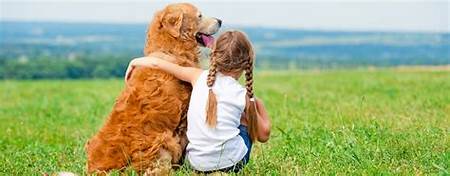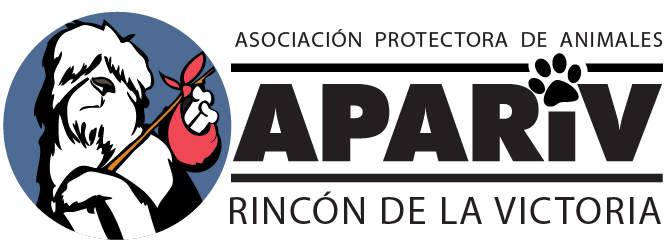 For some years now, the topic of vaccination for dogs and cats has been discussed very differently by pet owners, but also by veterinarians, and the topic has almost become a "religious war"!
For some years now, the topic of vaccination for dogs and cats has been discussed very differently by pet owners, but also by veterinarians, and the topic has almost become a "religious war"!
The main argument of the "vaccination opponents" is mostly that the vaccinations are not for the benefit of the animal, but "for the benefit of the veterinarian". "... The reason for this is unfortunately not the comprehensive care of the veterinarian for the well-being of the domestic animals, but its desire for a flourishing practice. And thus the vaccination programs usual today form the economic basis of many veterinary practices, can make our animals ill in their variety and frequency however. ..." (see Center of Health).
In addition, the "vaccination opponents" often argue that most diseases against which animals are vaccinated are "virtually non-existent" in Germany and that vaccinations are therefore superfluous! But unfortunately they succumb here to a serious error! Because despite all tightening of the legislation for the import of animals from abroad (which serve primarily to ensure the health of our animals), thousands (with diseases, which were already almost exterminated with us) infected animals (extremely high dark figure => unauthorized puppy trade) arrive on "dark ways" still to Germany the other Central European countries and endanger the health of the domestic animals (not only the domestic animals, but also the wild animals). Because who knows where the strange "sweet" puppy or young dog comes from, with whom your own dog is currently playing and whether it is free of infectious diseases?
Therefore, it is important to take a closer look at the listed arguments and to read between the lines! Then you will very quickly notice that the statement is not "do not vaccinate", but "vaccinate sensibly"!
But what does "meaningful" vaccination mean?
From the point of view of a keeper concerned about the welfare of his animal, "meaningful vaccination" can only mean that his animal has the necessary vaccination protection at least against all life-threatening infectious diseases!
But !!! whether the today often recommended vaccination programs (with annual vaccinations) are the meaningful answer, still remains to be clarified!
Paracelsus (1493 - 1548) already taught us that "only the dose makes the poison"! And this wisdom certainly also applies to the vaccinations of our animals!
Those who love their animals will therefore never come up with the idea of denying them vaccination protection! And if you love your animal even more, you will have to check against which disease the renewal of the immunization is necessary (e.g. by a blood test)! By the way, such a blood test is mandatory when importing dogs from "EU third countries" to determine immunity against rabies!
Although rabies vaccination is not mandatory for animals living in Germany (provided they do not leave Germany), loving pet owners will regard it as "mandatory"! Otherwise, in case of suspicion of rabies, the pet owner has pronounced the death sentence on his pet. Non-rabies vaccinated animals must be killed immediately in case of suspicion of rabies! Vaccinated animals can be quarantined until the suspicion of rabies has been removed!
So the statement is: Vaccination - yes please! ... but meaningful and correct!
Information about vaccinations and vaccination schemes for dogs can be found here (vaccinations for dogs) and those for cats can be found here (vaccinations for cats).
And even if protective vaccinations are not prescribed in Germany (for privately kept animals), everyone who loves his animal (in coordination with the veterinarian of his confidence) should decide which vaccination scheme he considers sensible for his pet and also consider the possible consequences for his pet!
Unlike private pet owners, animal shelters have no room for manoeuvre when it comes to carrying out vaccinations.
They belong to those places where already due to the large number of animals (partly with questionable vaccination protection) an extremely high infection risk for the animals is given! Therefore, every animal shelter has the obligation to take all necessary measures to eliminate the risk of infection.
These "measures at the reception station" are defined in our "Operating description":
In order to protect the animals present in the reception centre, newly admitted animals shall be kept in a single kennel (quarantine kennel) until vaccinations for basic immunisation + 2 weeks (SHP+L4+T, BbPi) have been carried out.
The treatment against worms and ectoparasites also takes place here.
All measures are documented in the prescribed treatment books and in the pet passport of the dog.
Any existing injuries of the newly admitted animals will be treated by or in consultation with the local veterinarian.
An ID chip is implanted into the dog for unambiguous identification.
From an age of approx. 8 - 12 months (with the beginning of sexual maturity) the castration of the dogs takes place (with if necessary locally prescribed marking).
Within the framework of the arrangement, the reception station is responsible (in compliance with the prescribed deadlines):
- Arrange for the blood test to be carried out for so-called "Mediterranean diseases" (e.g. leishmaniasis, babesiosis, ehrlichiosis) and for the success of the rabies vaccination (titer determination) to be tested in accordance with the prescribed deadlines by an approved laboratory.
Note: Determination of an infection or an insufficient vaccination against rabies leads to the exclusion of the animal from the placement in Germany!
For us, this obligation means that the vaccination of our protégés must have the same priority as the supply of feed! Therefore also a part of the incoming donations must be used compellingly for the execution of the protective vaccinations!
In order to support us with the vaccination costs you have the possibility to send donations via PayPal.
APARiV Spanien
IBAN : ES86 2100 2951 3702 0001 5277
BIC : CAIXESBBXXX
Your team APARiV






